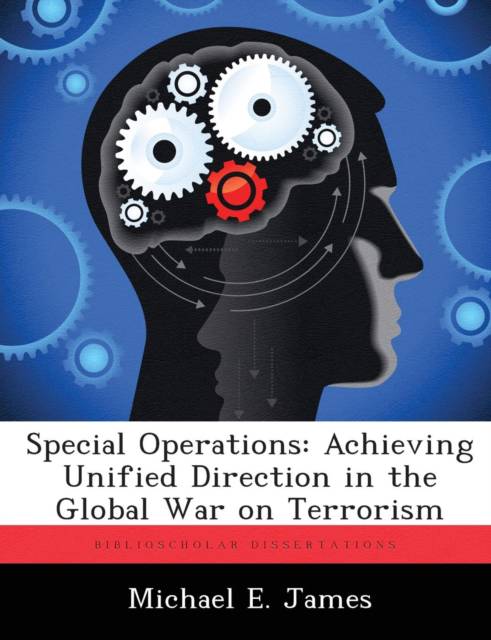
- Retrait gratuit dans votre magasin Club
- 7.000.000 titres dans notre catalogue
- Payer en toute sécurité
- Toujours un magasin près de chez vous
- Retrait gratuit dans votre magasin Club
- 7.000.0000 titres dans notre catalogue
- Payer en toute sécurité
- Toujours un magasin près de chez vous
Special Operations
Achieving Unified Direction in the Global War on Terrorism
Michael E James
Livre broché | Anglais
54,45 €
+ 108 points
Description
The purpose of this monograph is to ascertain what organizational changes within SOF would enhance unified direction in the Global War on Terrorism? In the wake of the 9/11 terrorist attacks, the United States Government began developing its national strategy to fight the Global War on Terrorism (GWOT). While the GWOT is a new direction for American policy it may well represent a paradigm shift for the Department of Defense (DoD)-a shift reflected in two important issues. First, was the realization that the GWOT was not a war fought with conventional forces but required forces uniquely qualified to operate against a terrorist foe. Second, the global focus for fighting terrorism would pose some challenges for the American military predominately organized along regional or geographic lines via the warfighting combatant commands. DoD appeared to address both issues in 2004 when it revised the Unified Command Plan to designate the United States Special Operations Command (USSOCOM) as the lead for planning and synchronizing DoD operations for the GWOT. DoD had in USSOCOM a single point of entry responsible for GWOT military actions instead of four geographic commands conducting independent military operations. However, while DoD might have solved its unified direction issue, USSOCOM now had a significant challenge to overcome, how to carryout a global mission without owning any global terrain? Understandably, this has created some friction between USSOCOM and the geographic combatant commands and has made the process of achieving unified action more challenging. As a functional combatant commander with limited authorities, USSOCOM will have to look internally for ways to mitigate the gap between planning and execution and still preserve unified direction. What changes are necessary for USSOCOM to achieve increased efficiency and greater responsiveness to both global and GCC requirements within the boundaries of its authorities as a functional combatant command? This mon
Spécifications
Parties prenantes
- Auteur(s) :
- Editeur:
Contenu
- Nombre de pages :
- 62
- Langue:
- Anglais
Caractéristiques
- EAN:
- 9781288322176
- Date de parution :
- 21-11-12
- Format:
- Livre broché
- Format numérique:
- Trade paperback (VS)
- Dimensions :
- 189 mm x 246 mm
- Poids :
- 127 g

Les avis
Nous publions uniquement les avis qui respectent les conditions requises. Consultez nos conditions pour les avis.






